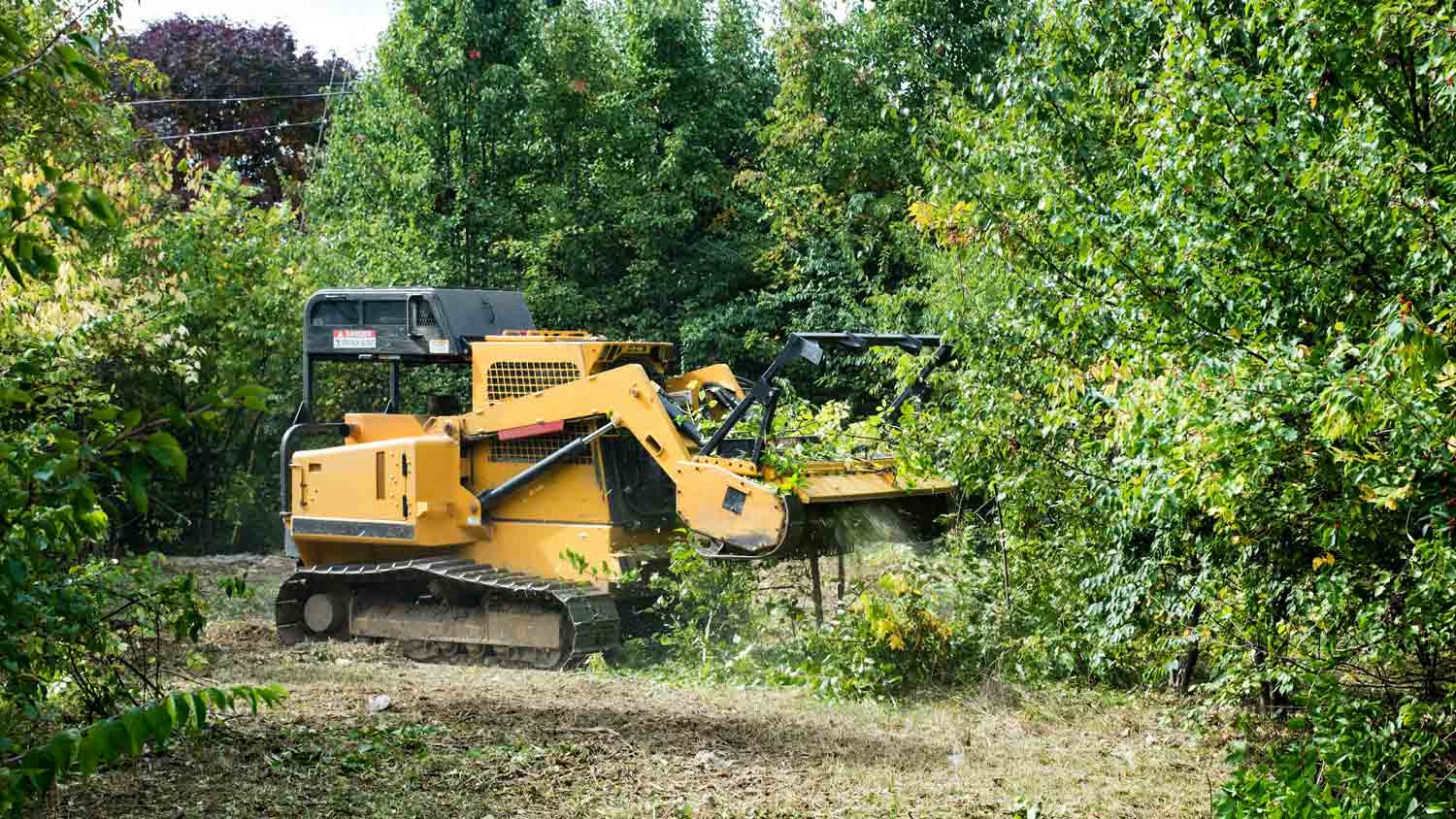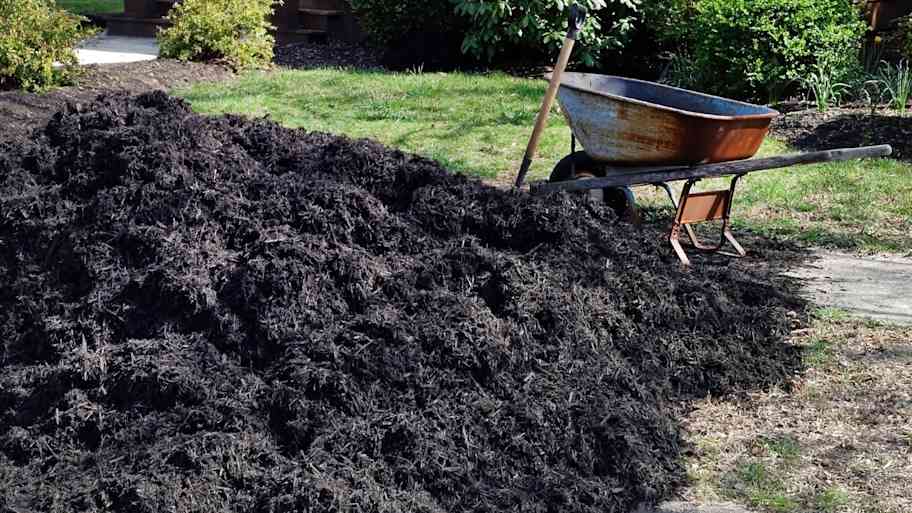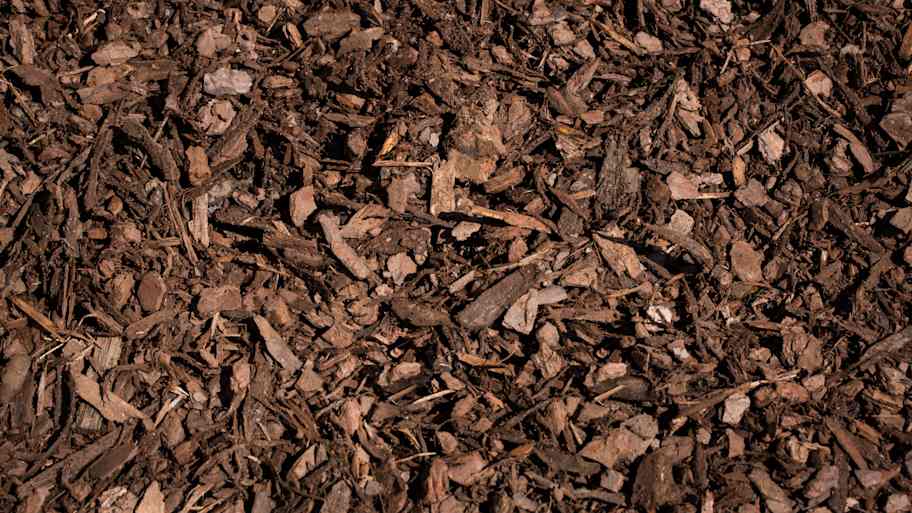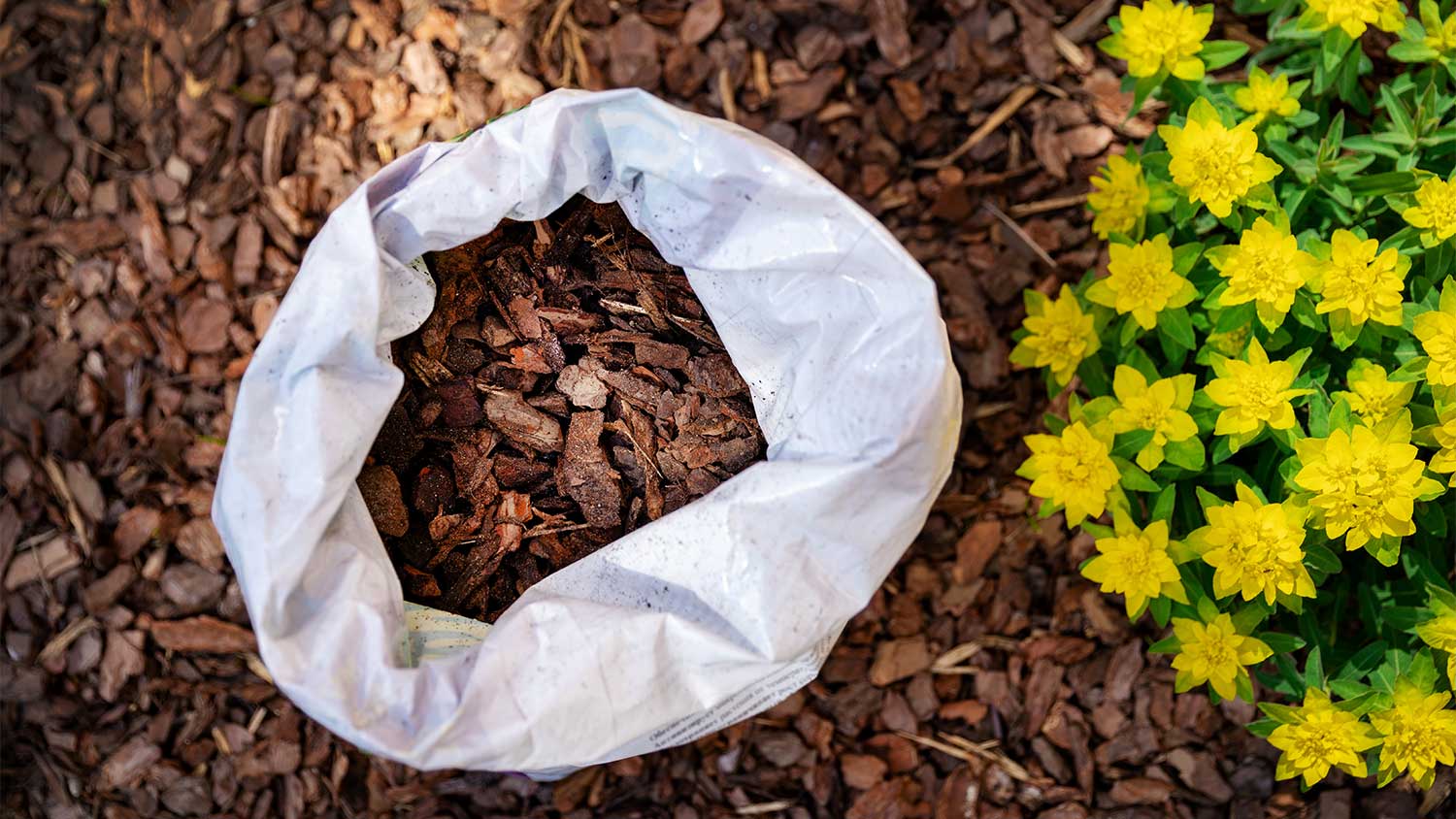
Discover the average forestry mulching cost, including per-acre and hourly rates, plus key factors that impact your total price. Get expert tips to save on your project.
Which mulch makes more sense for your garden goals?


Black mulch holds in heat, making it ideal for early planting.
Brown mulch offers a natural look and slowly enriches the soil.
Both types of mulch help control weeds and lock in moisture.
Black mulch can fade and sometimes contains synthetic additives.
Brown mulch can also lose its color or attract pests.
Choosing between black and brown mulch isn’t just about looks—it can affect how your plants grow, how your soil behaves, and how much work you’ll have to do down the line. These two mulches do share some basics, like helping with moisture and weed control, but they function a bit differently. Your decision should come down to what your garden needs most in warmth, aesthetics, or long-term soil health.
Of the two mulch choices, black mulch absorbs more sunlight, which raises soil temperature and makes it great for gardens that need warmth early in the season. Its dark color also blocks more light from hitting budding weeds, helping reduce their growth. It’s especially popular in vegetable gardens and neat, manicured landscaping.
Brown mulch is made from shredded bark or hardwood and offers more of a "slow-burn" benefit. It regulates soil temps without overheating, helps keep moisture in, and slowly decomposes to improve soil structure over time. Its earthy tone gives off a more natural vibe, blending into rustic or casual garden styles.

Black mulch is often chosen for its clean, bold appearance and practical benefits in early planting or cooler regions. It forms a visual contrast against greenery, keeps water from evaporating too fast, and prevents weeds from gaining a foothold. But not all black mulch is created equal, especially if it’s dyed or made from recycled materials. However, should you use organic mulch, its natural materials feed the soil with nutrients and improve its texture over time.
| Pros | Cons |
|---|---|
| Sharp, dark color boosts visual appeal | Can raise soil temps too much |
| Strong weed suppression | Some recycled types contain chemicals or plastics |
| Helps soil retain moisture | Color fades over time |
Best for:
Gardens in cooler regions
Veggie beds needing early-season warmth
Landscapes with a modern or high-contrast aesthetic
Fast-growing plants in need of consistent moisture
Boosts visual impact: Black mulch gives garden beds a polished look. It contrasts with green plants and bright flowers, making them stand out in a bold, modern way.
Keeps weeds from thriving: The dark color helps block sunlight from weeds. That makes it harder for weeds to sprout and take hold, giving your garden plants more room to thrive without constant competition.
Holds moisture: Black mulch slows evaporation by shading the soil. That means less watering and more consistent soil moisture, which is great for plant roots and is helpful in dry areas.
Can overheat soil: Because black mulch traps heat, it can warm the soil too much in summer, especially in already hot climates. This can stress plants or affect seed germination.
Possible toxic chemicals: Black mulch is often made from recycled materials that can include toxins that leach into the soil.
Color fades over time: Black mulch might look modern and sleek at first, but constant sun exposure can cause it to fade, and when it does, it looks less natural than brown mulch. Eventually, it can turn gray or patchy.

Brown mulch is mostly made from natural materials like shredded wood or bark, and it’s favored for its more organic look. However, it does more than look good—the natural variety of brown mulch breaks down over time and turns into compost, feeding the soil and improving its structure. It also helps garden beds retain moisture and blocks weeds.
| Pros | Cons |
|---|---|
| Natural tones blend into most garden styles | Color fades faster in direct sun |
| Breaks down into compost to feed the soil | Low-quality or dyed mulch may contain unwanted chemicals |
| Insulates without overheating | Can attract pests or harbor mold |
Best for:
Organic or eco-friendly gardening
Gardeners focused on long-term soil health
Moderate or warm climates
Beds where you want mulch to break down gradually
Insulates without overheating: Brown mulch regulates temperature extremes by helping soil absorb and retain heat, keeping roots cool in summer and insulated during the colder months. That balance keeps plants healthy year-round. It also keeps weeds at bay by blocking light, which keeps them from sprouting in the first place.
Moisture retention: Like its darker counterpart, brown mulch locks in moisture and reduces how often you’ll need to water, especially during heat waves or dry spells. It lets your soil hang onto moisture longer, cutting back on evaporation so your plants stay hydrated even when the weather’s working against you.
Improves soil as it breaks down: Because brown mulch is often made from raw wood or bark, it naturally decomposes over time. That slow breakdown turns into compost, feeding the soil and improving its structure.
Can attract pests or mold: If the mulch hasn’t been properly composted, it can become a home for bugs or even develop mold in damp conditions.
Risk of over-mulching: Piling too much mulch around tree trunks or stems can cause roots to rot or struggle for oxygen, so application matters.
Color fades quickly: Sunlight can bleach brown mulch, especially if it’s dyed. That means you might have to refresh it more often to maintain a uniform look.
So, which mulch takes the trophy for your garden? Here's how black mulch and brown mulch fare in their respective categories. If you’re still uncertain which you should choose, contact a mulch and topsoil specialist in your area.
If you’re going for a dramatic look that makes greenery pop, black mulch takes the win. It gives gardens that freshly landscaped, high-contrast look that’s hard to beat. Brown mulch, on the other hand, blends into the background and gives off a more natural, understated vibe. It works well in rustic or casual gardens but doesn’t give the same “wow” effect.
Black mulch fades more noticeably and faster, especially under full sun. Even dyed types can lose their intensity over time, leaving behind a patchy, washed-out look. Brown mulch also fades, but the change is more subtle and doesn’t clash as much with garden tones.
If you're looking for the greener choice, brown mulch is your best bet. It’s often made from natural wood with fewer additives and dyes. Black mulch can sometimes contain recycled materials treated with unknown chemicals or dyes that leach into the soil or nearby water.
While both mulches help with moisture retention and temperature control, brown mulch does more over time. As it breaks down, it actually improves the soil’s structure and nutrient levels. Black mulch only adds value in this area if it’s organic mulch, and not all of it is.
Too much mulch can hinder plant growth as it blocks the nutrients, sunlight, and water it needs to grow. One to four inches of mulch is your average mulch depth for most plants.
When it comes to keeping weeds down, black mulch has the edge. Its dark color blocks sunlight better, helping prevent weeds from germinating. Brown mulch helps, too, but it doesn’t offer quite as strong of a barrier due to its lighter shade.
Mayflower was an excellent choice for the complete renovation of my condominium. They knew exactly how to deal with the complexities of the condo building and management to make the project very smooth, easy and done right. From start to finish, everyone was incredibly helpful and their...
Tony was very professional and personable. He explained the damage he saw and reassured me the work to be performed. On the day of the visit he was punctual, courteous and exceeded my expectations while sharing information.
We contracted NY Galaxy General Contracting to complete a recent, entire home renovation, this included bedroom, living room, kitchen and bathrooms. The project was seamless and completed just in time.I highly recommend them as they are extremely professional and truly care about their...
Alex and his crew are great! I contracted them to move my dad and they went above and beyond!
Excellent sales staff and installer. Easy to work with. I appreciated that my current system was able to be activated and used.
We didn't have to put down a deposit, and they did a fantastic job landscaping the front and rear! I appreciate it!
I needed a kitchen and bathroom remodeling and these guys were the best people I could choose. They took my vision and brought it to life! Amazing customer service.
From average costs to expert advice, get all the answers you need to get your job done.

Discover the average forestry mulching cost, including per-acre and hourly rates, plus key factors that impact your total price. Get expert tips to save on your project.

Find out the average mulch delivery and installation cost, plus key factors that impact your price. Learn how to budget, compare options, and save on your landscaping project.

Gravel is an inexpensive paving material overall, but costs vary by type. Find out what average gravel prices will look like for your project.

Get top tips for mulching your yard to help you get healthier plants, longer flowering time, and bigger harvests, whatever you're growing.

Forestry mulching is one of the most effective ways to clear acres of land. While it’s relatively cheap, it may not be the best solution for everyone.

Different types of mulch have different uses in your landscaping. Learn which mulch types are best to use on your property.